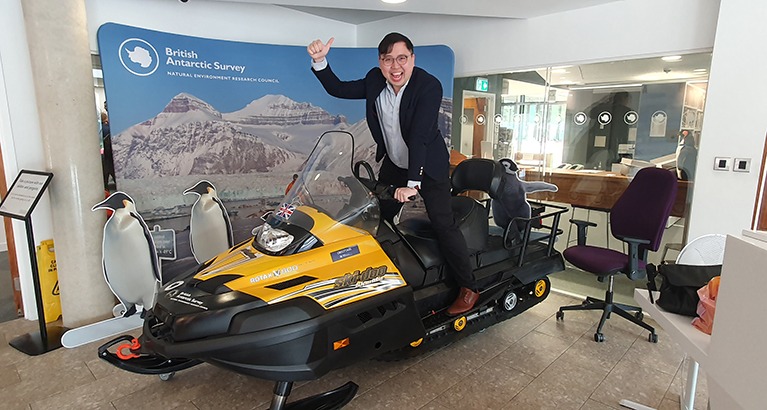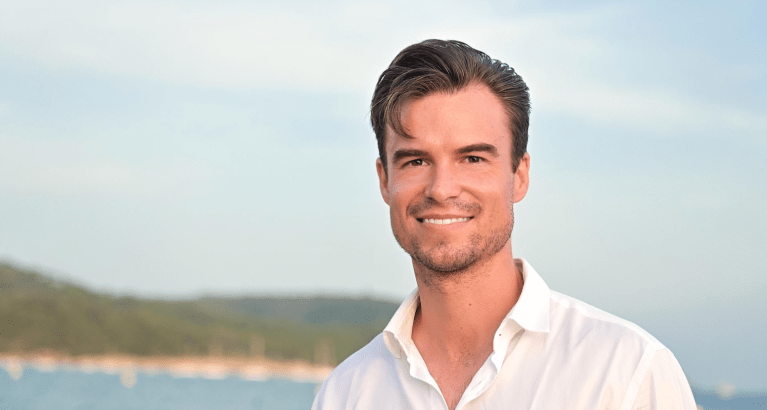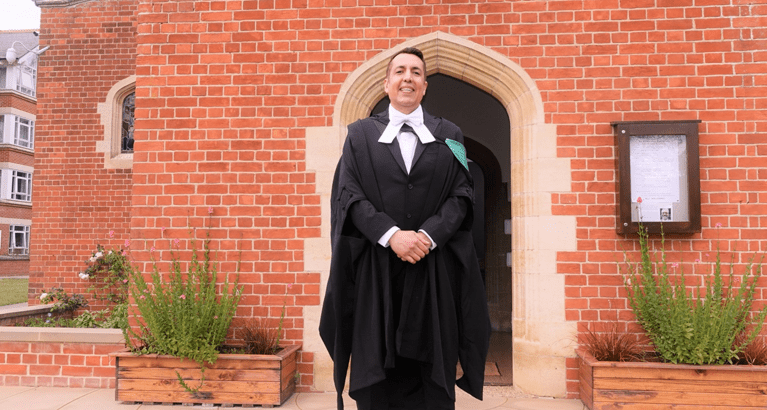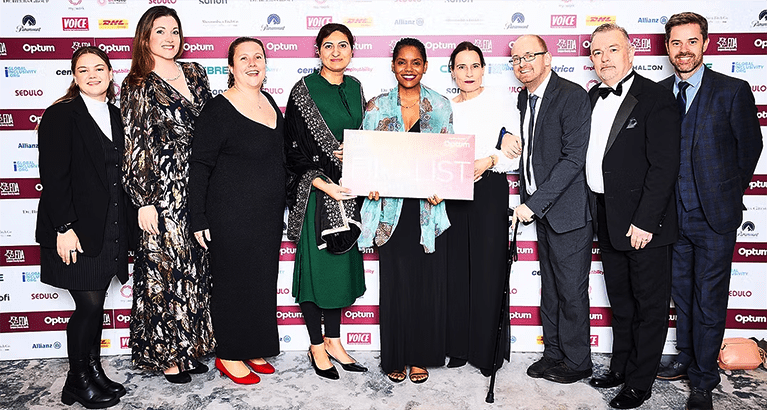The Cambridge Ecosystem course introduces conceptual frameworks and tools for systematically analysing opportunities across a wide variety of potential issues and industries. It benefits participants working in established organisations, as well as those planning to work in new ventures tackling sustainability issues. Participants are encouraged to think strategically about sustainability.
This year’s focus on ESG serves as an introduction to the vast and rapidly changing area of business and sustainability. According to the 12th United Nations Global Compact-Accenture CEO study[1], the message from CEOs is painfully clear: we must accelerate our work in sustainability to build a more resilient future if we are to rescue the Sustainable Development Goals (SDGs).
To explore cutting-edge research into different elements of ESG, the course comprises classroom sessions and visits to University departments and museums, as well as to some of the successful businesses that have built up over the years around the University. It leverages on Cambridge’s unique location at the heart of the Cambridge Cluster, or Silicon Fen, now the most successful technology cluster in Europe and one of the most successful in the world.
Jen Howard-Grenville, Diageo Professor in Organisation Studies, gave a series of lectures at the Business School about ESG initiatives and the practicalities of implementing them. There were also workshops and a panel discussion on ‘Finance in the field: investing in the agricultural transition’. Visits to Cambridge tech companies included ARM and Redgate. ARM is a Cambridge success story. Its technology is used by billions of people in their phones and computers every single day. Redgate is a software company based on the Cambridge Business Park that offers end-to-end database DevOps to help organisations streamline software development and get value from their data faster.
Cambridge is home to the largest cluster of conservationists in the world
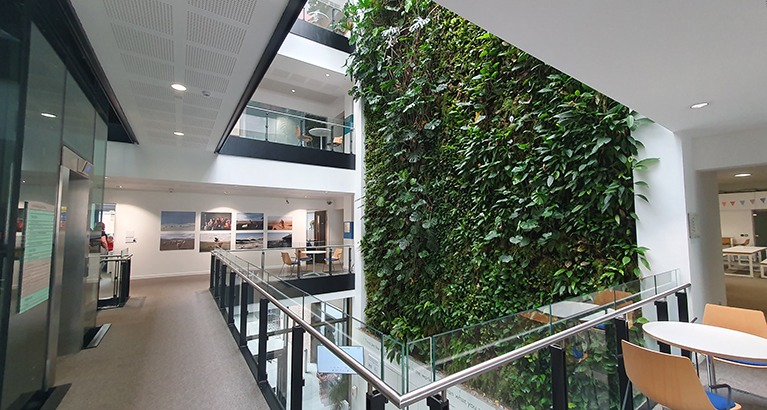
The 2 visits that really drove home the environmental impact of climate change were to the Cambridge Conservation Initiative (CCI) and the British Antarctic Survey (BAS). The CCI is a unique collaboration between the University of Cambridge and 10 leading internationally focused biodiversity conservation organisations. Its strong convening power allows the CCI to directly engage with a wide audience globally, from leaders in government, business, academic and NGO communities to the general public.
Elizabeth Allen, Collaborations & Engagement Manager at CCI, opened the session. She lauded Cambridge’s conservation credentials: “Cambridge is the largest geographical cluster of conservation bodies in the world.” Allen highlighted the biophilic design of the CCI’s Attenborough building that puts nature and sustainability centre stage, transforming an old University building into a vibrant hub for conservation. It facilitates collaborative working for researchers, policymakers and practitioners, and its location in Cambridge city centre alongside retail spaces and Colleges symbolises the CCI’s vision for a “diverse world in which nature and society thrive”.
Then over to Oliver Yates, Head of BirdLife International Marine Programme at RSPB, who presented on his work to investigate and mitigate the risk that longline vessels pose to albatrosses. According to Yates, “Albatross populations are in steep decline, with about 360,000 birds killed each year by fisheries.” Incidental capture (also known as bycatch) in fishing gear represents the greatest global threat to albatrosses, with 15 out of 22 species at risk of extinction.
Work with fisheries management organisations has resulted in regulations stipulating how fishing vessels set their lines, and new research shows that these measures have had a hugely beneficial effect on protecting species. Regulation compliance is now monitored via GPS tracking data. Yates emphasises the crucial importance of this tracking data, which allows the study of detailed migration routes and an understanding of the conservation issues faced by migratory birds.
In the following Q&A session, one of the EMBA candidates asked Allen and Yates what action they would most like to see from the business world. Yates called for businesses to be “honest and transparent” about what they can achieve. Allen continued, “We would love to collaborate with businesses to develop a compelling case for pro-nature decision-making that resonates across the business community – something that was co-designed collectively by conservationists and business leaders that blends the skills, learning and expertise that each of these groups has. I’d hope that this would pave the way towards a revision of our current modus operandi of short-term decision-making focused on profit. Happily, these sorts of relationships are already developing, as Oli demonstrated in his presentation – we just need more of them and to scale them up.”
World-leading polar science changes the way we understand our world
The British Antarctic Survey (BAS) delivers and enables world-leading interdisciplinary research in the Polar Regions. Its research highlights the fragility of the Earth’s frozen environments, and what that means for our planet. In our visit to BAS, Beatrix Schlarb-Ridley, Director of Innovation and Impact at BAS, talked about the drivers for net-zero and the call for change from the Polar Regions. She discussed the link between the climate and biodiversity crises, stating, “we are on track for the mass extinction of species in our lifetime”. This will be the largest loss of life on Earth since the time of the dinosaurs.
Understanding how the Antarctic is responding to current climate change – and what the continent was like in the past – is essential if scientists are to be able to more precisely predict future climate change and provide accurate information to politicians and policy makers. Antarctic ice cores are key to this understanding since they reveal the clearest link between levels of greenhouse gases in the atmosphere and the Earth’s temperature. Schlarb-Ridley: “Ice cores are the only record we have on the planet of the atmosphere of the past. Similarly to tree rings, as you go down, you go back in time. 800,000 years of climate history stored in Antarctic ice cores show that we are now in unchartered territory.”
Schlarb-Ridley urged the “need for transformative change”. She continued, “we need a positive, life-giving approach that taps into our passions and deepest value systems to provide long-term motivation, perseverance and creativity. As individuals and as business leaders, we must ask what we can do to make a difference in our own sphere of influence – and we must act on it.”
This was driven home by further speakers, including Scott Hosking, Founder of the BAS AI Lab and Environmental Data Scientist at the Alan Turing Institute, who talked about his work to harness the power of AI to create Digital Twins – virtual replicas of the Earth’s systems – to help us understand, predict, and ultimately solve the challenges of climate change.
Cambridge Ecosystem was a powerful reminder that we all have a role to play
In the words of Executive MBA candidate Gokul Yesodharan (EMBA 2023), who participated in this first Cambridge Ecosystem week, “While the scale of the ESG challenge can seem daunting, the Cambridge Ecosystem demonstrated pockets of excellence and a spirit of innovation that give me hope. My experience during the week was a motivating first-hand look at the art of the possible when universities, businesses, non-profits and individuals come together in pursuit of a better world.”
Executive MBA programmes
We offer 20-month programmes for senior executives who want to apply their knowledge and skills as they learn.
Related content
Main article image: Vincent Leung (EMBA 2023) test drives a snowmobile at the British Antarctic Survey.


